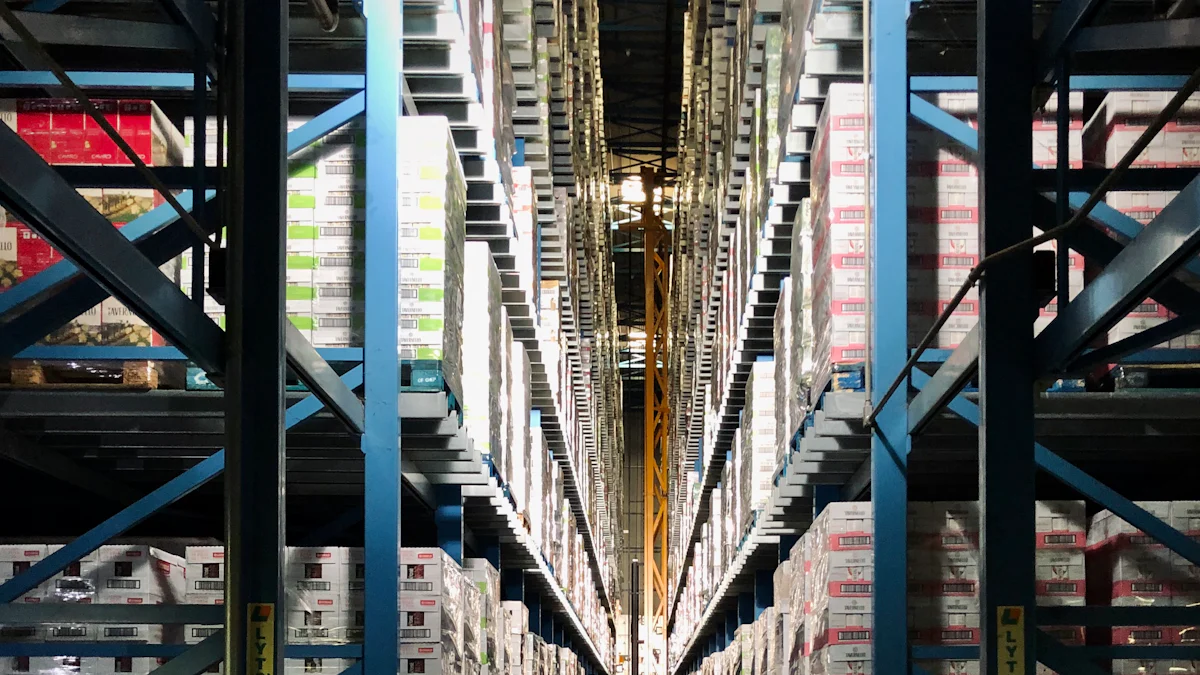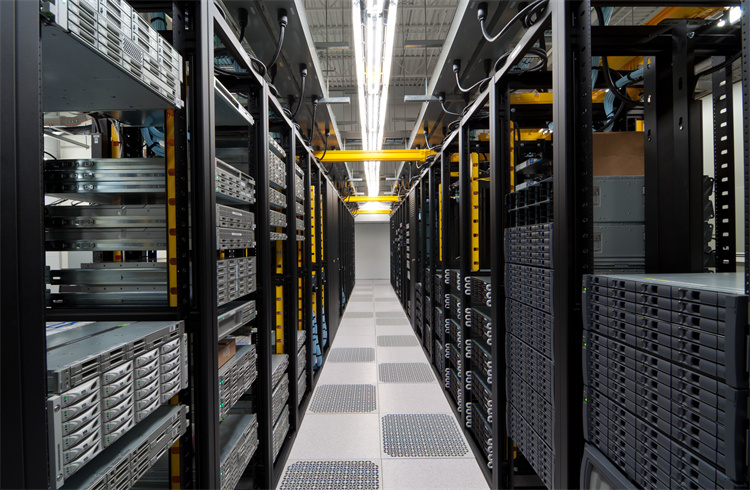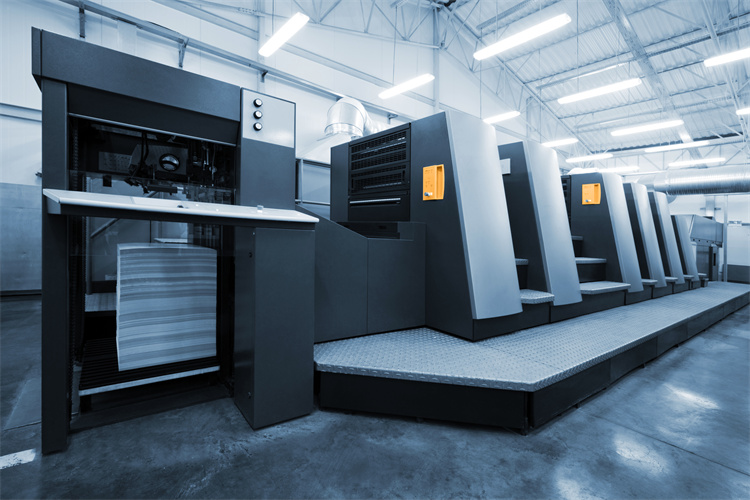Clearing the Path: Future Logistics with Digital Technology

Logistics industry faces numerous challenges in today's fast-paced world. Embracing digital technology is crucial to overcome these obstacles efficiently. The integration of innovative technologies like Internet of Things (IoT), Artificial Intelligence (AI), and Blockchain is revolutionizing the logistics landscape, enhancing operations, and ensuring seamless supply chain management.
The Role of Digital Technology
In the realm of logistics, digital technology plays a pivotal role in streamlining operations and enhancing overall efficiency. By embracing innovative solutions, companies can significantly boost their performance and meet customer demands more effectively.
Enhancing Efficiency
Automation is at the forefront of modern logistics, revolutionizing how tasks are completed. Through automated processes, companies can optimize their workflows, reduce errors, and increase productivity. This leads to faster turnaround times and improved resource utilization.
When it comes to real-time tracking, digital technology offers unparalleled visibility into the supply chain. By utilizing advanced tracking systems, businesses can monitor shipments in real time, identify potential delays proactively, and ensure timely deliveries. This level of transparency fosters trust with customers and enhances operational reliability.
Improving Customer Experience
In today's competitive market, providing personalized services is key to retaining customers. Digital technologies enable companies to tailor their offerings based on individual preferences and past interactions. This personalized approach enhances customer satisfaction and fosters long-term loyalty.
Moreover, by focusing on faster delivery times, businesses can exceed customer expectations and set themselves apart from competitors. Leveraging digital tools for optimized route planning and efficient order processing results in swift deliveries that meet the demands of modern consumers.
As companies continue to invest in digital transformation, the logistics industry stands to benefit from increased efficiency, enhanced customer experiences, and sustainable growth.
Key Technologies in Logistics

In the realm of logistics, digital technology drives innovation through key technologies like Internet of Things (IoT), Artificial Intelligence (AI), and Blockchain. These cutting-edge solutions are transforming traditional supply chain management practices, optimizing operations, and ensuring seamless connectivity across the logistics network.
Internet of Things (IoT)
Implementing smart sensors in logistics operations revolutionizes data collection and monitoring processes. These advanced devices enable real-time tracking of shipments, temperature-sensitive goods, and storage conditions. By leveraging smart sensors, companies can proactively identify potential issues, optimize routes, and enhance overall operational efficiency.
The integration of connected vehicles in logistics introduces a new era of fleet management and transportation optimization. Through IoT connectivity, vehicles can communicate vital information such as location, fuel levels, and maintenance requirements. This real-time data exchange streamlines delivery schedules, reduces fuel consumption, and enhances driver safety on the road.
Artificial Intelligence (AI)
Predictive Analytics
Utilizing predictive analytics powered by AI algorithms empowers logistics companies to forecast demand patterns accurately. By analyzing historical data and market trends, businesses can anticipate customer needs, optimize inventory levels, and minimize stockouts. This proactive approach to decision-making ensures efficient resource allocation and enhances overall supply chain performance.
The emergence of autonomous vehicles in logistics represents a significant leap towards operational autonomy and efficiency. AI-driven systems enable self-driving trucks and drones to navigate complex routes, deliver goods securely, and reduce human intervention in transportation tasks. By embracing autonomous technologies, companies can achieve faster delivery times, lower operational costs, and enhanced scalability in their logistics operations.
Blockchain
Blockchain technology offers a decentralized platform for conducting secure transactions within the logistics ecosystem. By recording every transaction in a tamper-proof ledger, blockchain ensures transparency and trust among stakeholders. This immutable record-keeping system minimizes fraud risks, streamlines payment processes, and strengthens the overall integrity of supply chain transactions.
Transparent Supply Chains
Integrating blockchain into supply chain management fosters transparency at every stage of the product journey. From sourcing raw materials to final delivery, blockchain enables real-time visibility into product origins, manufacturing processes, and distribution channels. This transparency builds consumer trust by providing verifiable information on product authenticity, ethical practices, and sustainability efforts.
Future Trends in Logistics

Sustainability
In the realm of logistics, embracing green technologies is not just an environmental choice but a strategic advantage. Companies that integrate sustainable practices into their supply chain operations can reduce costs, minimize carbon footprints, and enhance brand reputation. By shifting to renewable energy sources and optimizing transportation routes, businesses can significantly decrease their environmental impact while improving operational efficiency.
Implementing energy-efficient practices is essential for modern logistics operations seeking to achieve sustainability goals. Transitioning to fleets of electric vehicles reduces reliance on fossil fuels, lowers emissions, and promotes cleaner transportation. Moreover, optimizing fuel efficiency through route planning and load management minimizes waste and contributes to a greener supply chain ecosystem.
Advanced Robotics
The adoption of warehouse automation through advanced robotics is revolutionizing the way companies manage inventory and fulfill orders. Automated systems streamline warehouse operations by increasing accuracy, reducing errors, and enhancing productivity. By implementing robotic solutions for tasks like picking, packing, and sorting, businesses can optimize space utilization and improve overall operational efficiency.
Utilizing delivery drones in logistics represents a cutting-edge approach to last-mile delivery services. These unmanned aerial vehicles offer swift and efficient delivery options for small packages in urban areas. By leveraging drone technology, companies can overcome traffic congestion challenges, reduce delivery times, and enhance customer satisfaction with prompt order fulfillment.
The fusion of AI, Blockchain, and IoT in logistics is a transformative journey into the future. These technologies are steering the logistics industry towards levels of innovation and excellence previously unimagined. Digital logistics can enable predictive analytics to anticipate future needs and trends, allowing supply chain leaders to be more proactive in their planning. Embracing digital technology is not just an option but a necessity for companies looking to thrive in the dynamic landscape of modern logistics. The future holds boundless opportunities for those who dare to embrace the power of innovation and digital transformation.
See Also
Innovative Technology in Logistics: Exploring Future Possibilities
Artificial Intelligence in Supply Chain: Transforming Logistics Ahead
Tomorrow's Logistics Industry: A Route to Professional Advancement
Virtual Replicas: Revolutionizing Supply Chain Operations
Embracing Transformation: Adjusting to Technology-Based Supply Chain Answers
